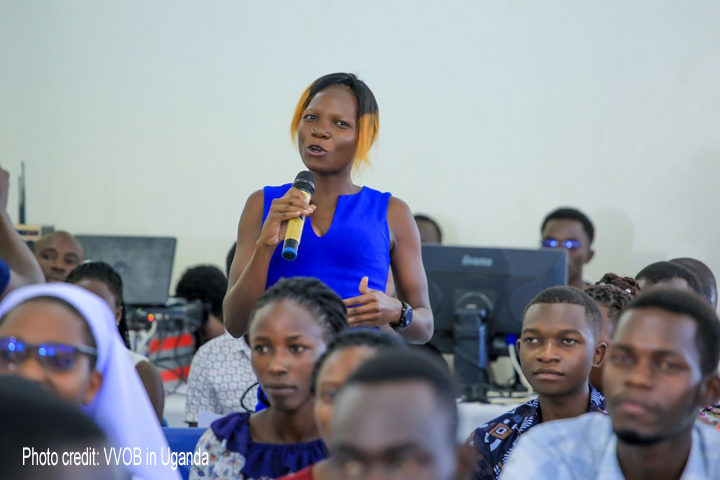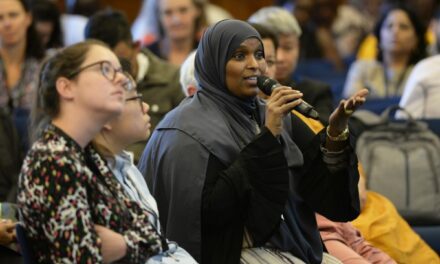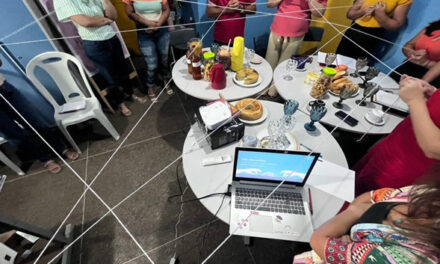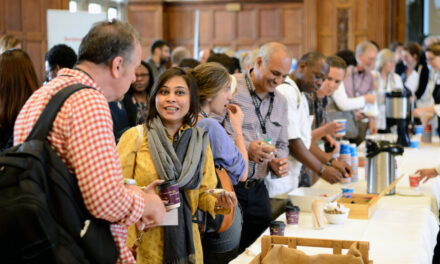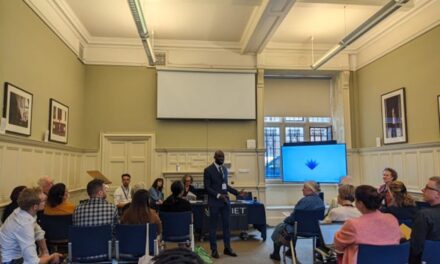This blog was written by Dr. Grace Mwaura, Strategic Education Advisor, VVOB in Uganda, and Maud Seghers, Global Strategic Education Advisor, VVOB International. It is based on a presentation given at the September 2023 conference.
Thousands of Ugandan youth join secondary education every school year, most of them hoping to find meaningful work after school (OECD, 2021). There is, however, a glaring gap between these employment preferences and the reality of the world of work – a gap that sets young people up for particularly troublesome school-to-work transitions. Additionally, learners in secondary education tend to be overly optimistic about starting salaries and they are reluctant to accept initial unpaid employment as a stepping stone towards more sustainable futures (Alfonsi et al., 2022). Such misaligned ambitions are a known antecedent to entry into so-called NEET (not in employment, education, or training) status. In Uganda, the share of youth NEETs is as high as 41 percent. A recent increase in NEET rates is even concentrated among those who completed secondary education or more (ILO, 2023). As education requires a significant investment from the government, families, and young people themselves, we believe secondary schools have a duty to properly inform learners of the variety of work opportunities available to them afterwards.
While Uganda has clear policy frameworks and guidelines on guidance and counselling in schools, implementation remains a challenge. With very few trained and qualified counsellors available in secondary schools, one policy option recommended by the Economic Policy Research Centre, is to build the capacity of teachers to deliver career guidance and counselling to students (EPCR, 2021). But how can teachers actually bring work opportunities into the classroom in order to inspire the young learners, while also fulfilling the core of their role in the education system – curriculum delivery? We would argue that the recent introduction of a competency-based curriculum presents a great opportunity to strengthen teachers’ contribution to study and career guidance. Having taken this huge step forward of reforming the secondary curriculum, the Ugandan Ministry of Education and Sports is keenly aware of the need to prepare teachers for its delivery and welcomes innovative initiatives from diverse stakeholders in support of teachers.
Research from the UK has shown that career talks when delivered to students in their earlier years of secondary education, even 2-3 sessions with role models have resulted in a visible change in the attitude and aspirations of the learners towards their schooling (Kashefpakdel & Percy, 2016; Kashefpakdel, Percy & Rehill, 2019; Mann, Percy & Kashefpakdel, 2018). While less studied, there is some evidence that secondary schools across Africa are also experimenting with such talks (Amegah, 2021; Makola et al., 2021). VVOB, an organisation on a mission to improve the quality of teaching, views career talks as a great opportunity for teacher professional development in order to continually create spaces for inspiring young learners towards dignified and fulfilling career paths. In a five-year programme targeting improving the quality of agriculture and entrepreneurship education, secondary school teachers will be equipped with competences for delivering effective and gender-responsive study and career guidance to their learners in their first years of schooling.
A recent feasibility study by VVOB already indicated that secondary teachers and school leaders appreciate a model of career talks that gives students perspective on possible career pathways and introduces them to role models who become part of their social network. The challenge that these teachers and school leaders expressed however, relate to their own ability to effectively organise these career talks, align them with their classroom lessons and meaningfully engage the role models to meet the learning expectations of the learners. They also lack guiding resources on study and career guidance. Equally, the time and cost for organising career sessions is critical to their commitment.
In VVOB’s Learning Entrepreneurship and Agriculture Practically (LEAP) programme, teacher trainers, teachers and ministry stakeholders will co-create, test and improve upon a low-cost model of career talks integrated in classroom subjects. This will mean that career sessions will be scheduled during the regular school timetable informed by specific learning objectives set out by the teacher. The teacher, with the support of the school leader, will have an opportunity to identify role models from the community who are willing to volunteer their time to deliver these talks to students in their first years of secondary education. The teacher will be supported with resources for identifying and preparing the right role models, facilitating a successful career talk and actively engaging students during the career talk so that they can fully benefit from the interaction. Considering the significance of gender in agriculture and entrepreneurship, VVOB is intentionally equipping the teachers and school leaders so that the design and delivery of career talks remains gender responsive. This means that both male and female learners will receive equal encouragement in possible career opportunities in agriculture and entrepreneurship. In order to diversify the range of role models available to a teacher, VVOB will experiment with both live and recorded career talks.
The model of career talks is similar to what previous studies have found – that learners exposed to career talks can gain a new perspective on possible future careers and improve on their outlook to school and life in general. The 2019 Motivated to Achieve report found that learners aged 14-16 years in the UK, upon participation in career talks with volunteers from the world of work can change their attitude to education, influence their future plans and subject choices, motivate them to study harder, and support improvement in academic attainment, even when conducted a few months to examinations (Kashefpakdel, Percy & Rehill, 2019).
To shape the contents of the career talks, we combine these insights with evidence from “Meet Your Future” in Uganda, a low-cost mentoring approach by well-matched volunteers from the world of work (Alfonsi et al., 2022). Livia Alfonsi and her team have shown that providing learners in secondary education, with information about entry level conditions in the world of work and with encouragement to persist in their search for world of work opportunities is key to results such as better employment and earning. Encouragingly, and much like the UK researcher, they also found that even “weak” ties (based on a few contacts with volunteers from the world of work rather than on bonds of family or friendship) that are generated by “outsiders” (such as an NGO or school) have a positive impact.
VVOB’s entry point is teacher training so that pre- and in-service teachers and school leaders have the skills and tools they require to organise career talks, then enabling them to effectively map and engage with role models in their communities. Simple teaching and learning support materials are being developed to support teachers, including a guide on how to profile, invite and engage a potential speaker in a career session, how to structure a career talk so that its relevant to the learners needs.
In summary, in strengthening the connection to the world of work for learners, career talks essentially strengthen the secondary education system and could boost learner aspirations to remain in school and consider diverse and meaningful career pathways post-secondary. There are several benefits to doing so: young people receive relevant guidance on how their current studies can translate classroom knowledge into real work opportunities in their community; role models paint a realistic image of what it means to pursue certain career paths while also attracting specific young people to aspire to experience working in their field of expertise; and teachers have an opportunity to relate theoretical subjects to practical examples offered by these role models. To achieve this, VVOB believes in testing and improving on low-cost career talks integrated in classroom subjects, facilitated by well-trained teachers and school leaders and supported by relevant and gender-responsive teaching and support materials.

